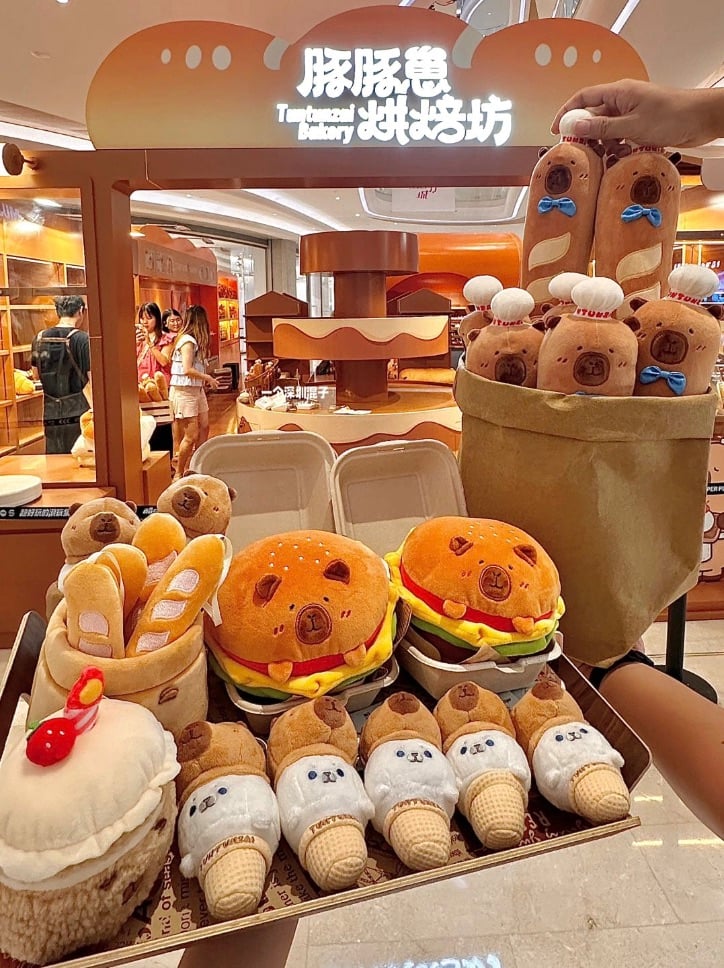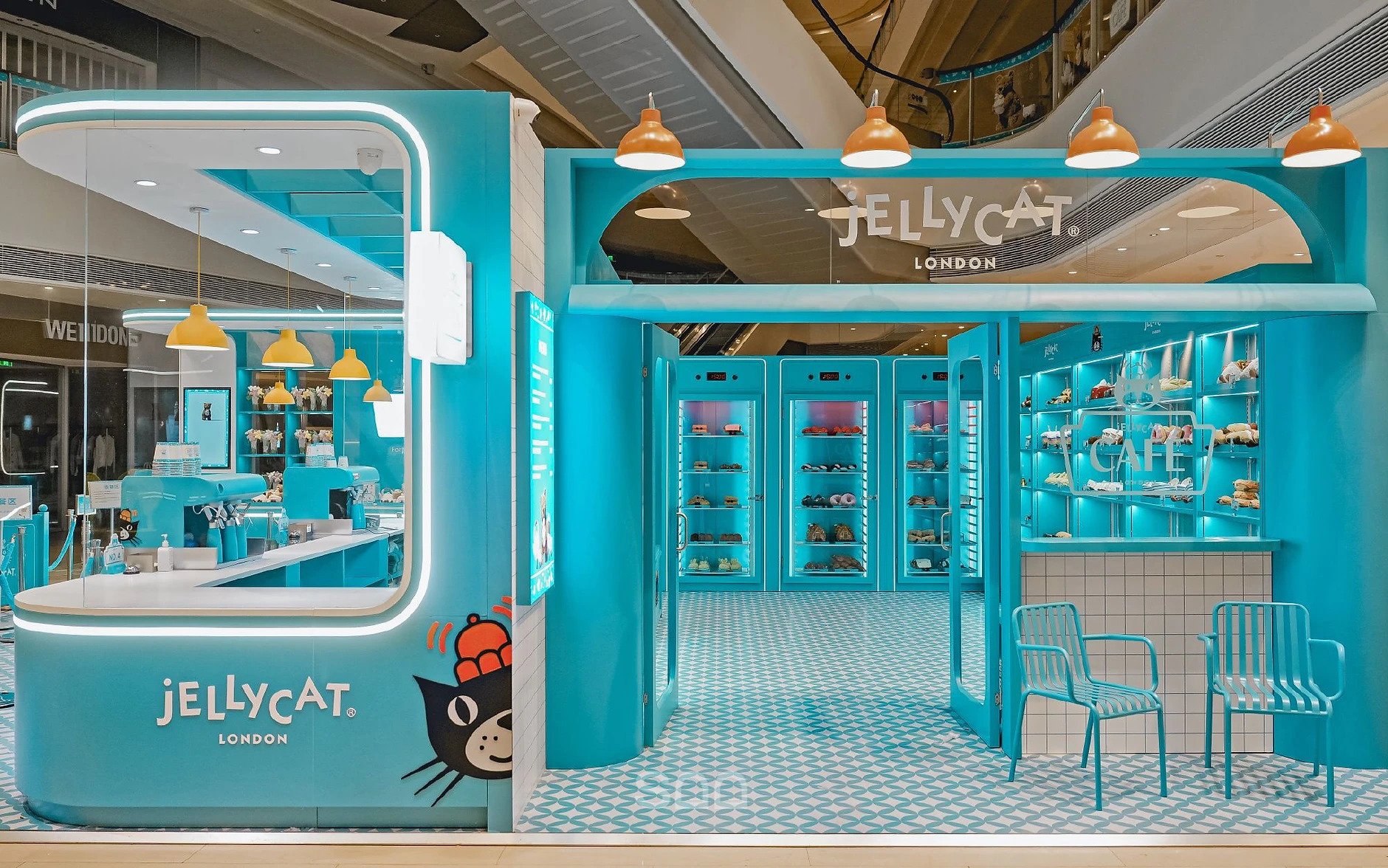Jellycat, a UK-based plush toy brand, has captivated the Chinese market with an ingenious combination of plush toys and immersive marketing. One of its most successful promotions is a Shanghai pop-up café which opened in late September, where celebrities like Song Yuqi, a Beijing-born member of K-pop group (G)I-DLE, posed as a café staff member for a day, creating a fan frenzy. What makes Jellycat’s marketing truly unique is how it appeals to adults, tapping into their emotional connection to childhood nostalgia. This blend of childhood comfort and modern experiences has created a craze for plush toys among grown-ups.
The Shanghai café, designed to resemble a pastel-toned bakery, features influencers and regular staff dressed as baristas and bakers, immersing visitors in a whimsical, fairy tale-like environment. Adults who flocked to the event shared stories on social media, expressing how Jellycat toys act as emotional companions. The netizen ONE. shared, “Jellycat uses emotional value to capture the hearts of the public. For consumers, it is not just a plush toy, but also a companion and a source of comfort!

Jellycat has cleverly tapped into this nostalgia-driven market by leveraging celebrities and creating spaces where visitors can interact with toys in imaginative ways. The café isn’t just about buying plush toys but about offering a lifestyle experience where fans can engage directly with their favorite characters and stars.
This adult-centric plush toy craze is not limited to Jellycat; many other plush toy companies have also adopted this form of marketing for their stores, such as Tuntunzai Bakery. These alternatives are not necessarily cheaper, but they employ the same marketing concept to push their distinct themes. (In the case of Tuntunzai Bakery, a capybara theme.) Customers don’t seem to mind the commercialization and are thrilled by the immersive experience. One Xiaohongshu user, 咕噜咕噜酱 (Gulu Gulu Jiang), captured her excitement in a post: “The Shanghai capybara flash mob is so cute! The baking theme is so delicious. It’s so fun to shop! It takes an hour or so to come out… I was lucky to encountered the new “Mengli” series on the first day of the National Day holiday, the small ones are so cute.” Clearly, this type of engaging atmosphere keeps customers coming back for more.

By turning toys into emotional and lifestyle experiences, Jellycat has transformed itself from a simple plush toy brand into a cultural phenomenon in China, proving that nostalgia, when cleverly marketed, appeals as much to adults as to children.
Banner image via Shop Drop Daily.

















